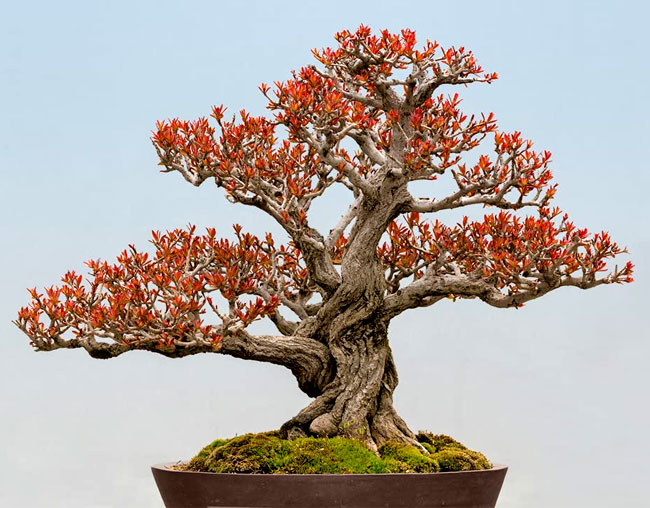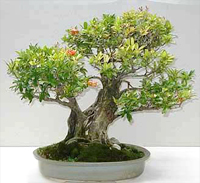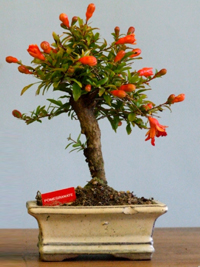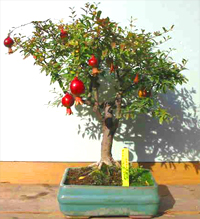
The Pomegranate Bonsai Tree, scientific name Punica Granatum, is a deciduous tree that will drop all or most of its foliage during winter. It is mostly grown for its beautiful ornamental red flowers and juicy tasty fruits.
It is a very long-lived tree that is known to have survived two centuries. They grow best in the dry Mediterranean climate. The Punica granatum nana is a dwarf variety often used for creating a bonsai tree.
Additional Information
Family: Lythraceae
Scientific name: Punica Granatum
Common Names: Pomegranate, Granada.
Origin: Native to the Iranian Plateau and the Himalayas in north Pakistan and Northern India but widely cultivated around the world.
Appearance: It is a deciduous shrub usually with multiple stems. It has opposite, glossy, narrow oblong leaves.
Flowering: It produces bright red flowers with four to five ruffled petals petals. Flowers are followed by edible fruits that are shiny reddish or yellowish-green when mature. Each fruit is filled with juice and edible red seeds.
Outdoor/Indoor Use: Both.
Light Requirements: Need full sun.
Water Requirements: Require regular watering but prefer low humidity. Provide it with fast-draining soil and never allow for the soil to dry out completely. It also tolerates drought very well.
Hardiness: Grows best in the USDA Zones 8 – 11. This hardy bonsai tree can tolerate cold down to 15F.
Insects and Diseases: It doesn’t have many problems. Occasionally might get into trouble with pomegranate butterflies, thrips, scale, mealy bugs, and white flies.
Propagation: By cuttings or by layering.




